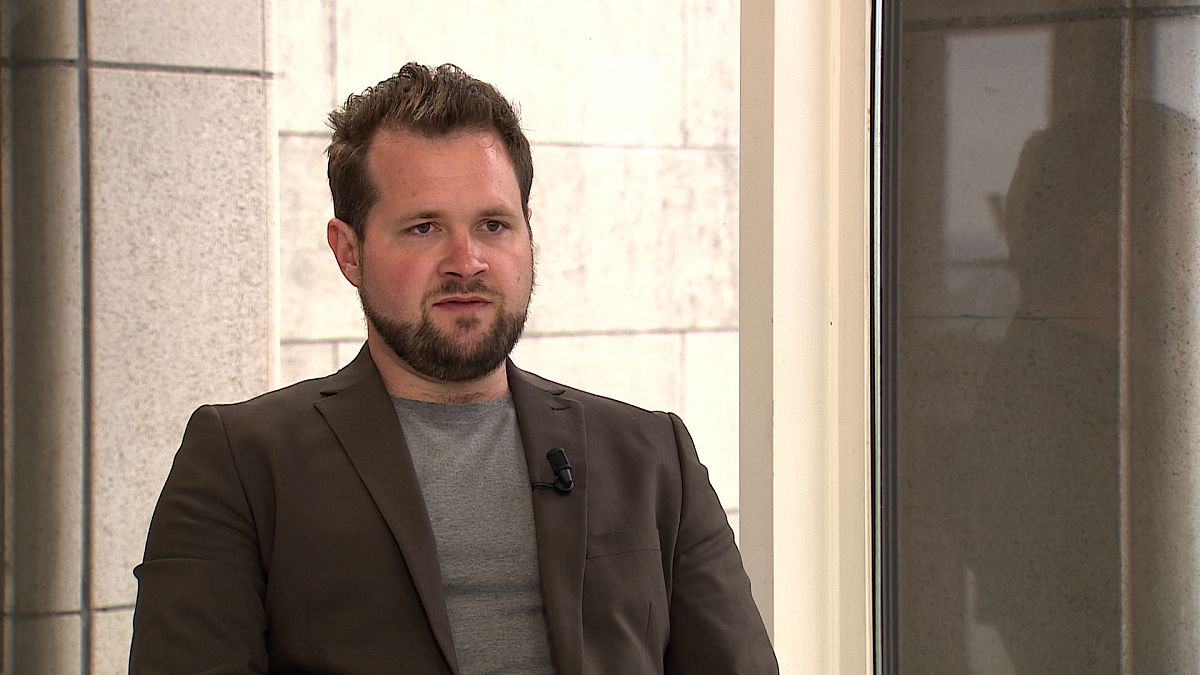Anders Vistisen, the face of the far-right Identity and Democracy’s (ID) European elections campaign, believes that the European Parliament’s two most right-wing factions, ID and the nationalist European Reformists and Conservatives (ECR), will come together to form a united bloc in the upcoming legislature. Vistisen argues that there is no significant political divide between ID, which includes parties like Marine Le Pen’s Rassemblement National and Italy’s Lega, and ECR, which includes parties like Poland’s Law and Justice (PiS) and Spain’s Vox. He believes that the differences between these groups are more about personalities in the larger parties than actual political distinctions.
Vistisen also addressed the potential for a united bloc between ID and ECR in the European Parliament, stating that while it may not happen immediately after the upcoming election, it could be a possibility in the future, potentially coinciding with the French presidential elections in 2027. However, a recent crisis within his party emerged when Marine Le Pen’s Rassemblement National indicated they would no longer sit with Alternative for Germany (AfD) in the European Parliament due to controversial Nazi comments made by AfD’s lead election candidate Maximilian Krah.
The controversies surrounding AfD have caused rifts within the ID party, with some members expressing dissatisfaction with AfD’s extremist stances. Vistisen defended the unity of his party, stating that he did not see member parties moving to the ECR group. Despite this, there have been ongoing investigations into foreign interference within the European Parliament, with some AfD candidates connected to alleged pro-Kremlin operations. Vistisen emphasized the need for proper investigations into these allegations and pledged that his party would take action if candidates were found guilty.
Vistisen also criticized the European Union for what he perceived as a lack of support for Ukraine in the face of Russia’s invasion. He argued that Europe had not provided enough military aid to Ukraine, leaving the country without a “fighting chance” against Russia. Vistisen claimed that the EU had committed less military support to Ukraine than the United Kingdom, despite the EU’s significantly larger military aid budget. He also rejected the idea of Ukraine joining the EU as a full member state, accusing EU leaders of trying to fast-track Kyiv’s accession without considering key benchmarks.
In conclusion, Vistisen’s comments shed light on the potential for collaboration between far-right factions in the European Parliament, despite recent divisions within his own party. The controversies surrounding AfD and allegations of foreign interference highlight the challenges facing these parties as they seek to establish a united front. Additionally, Vistisen’s criticism of the EU’s response to the conflict in Ukraine underscores ongoing tensions within the bloc regarding foreign policy and military support. As these dynamics continue to evolve, the future of far-right politics in Europe remains uncertain.











